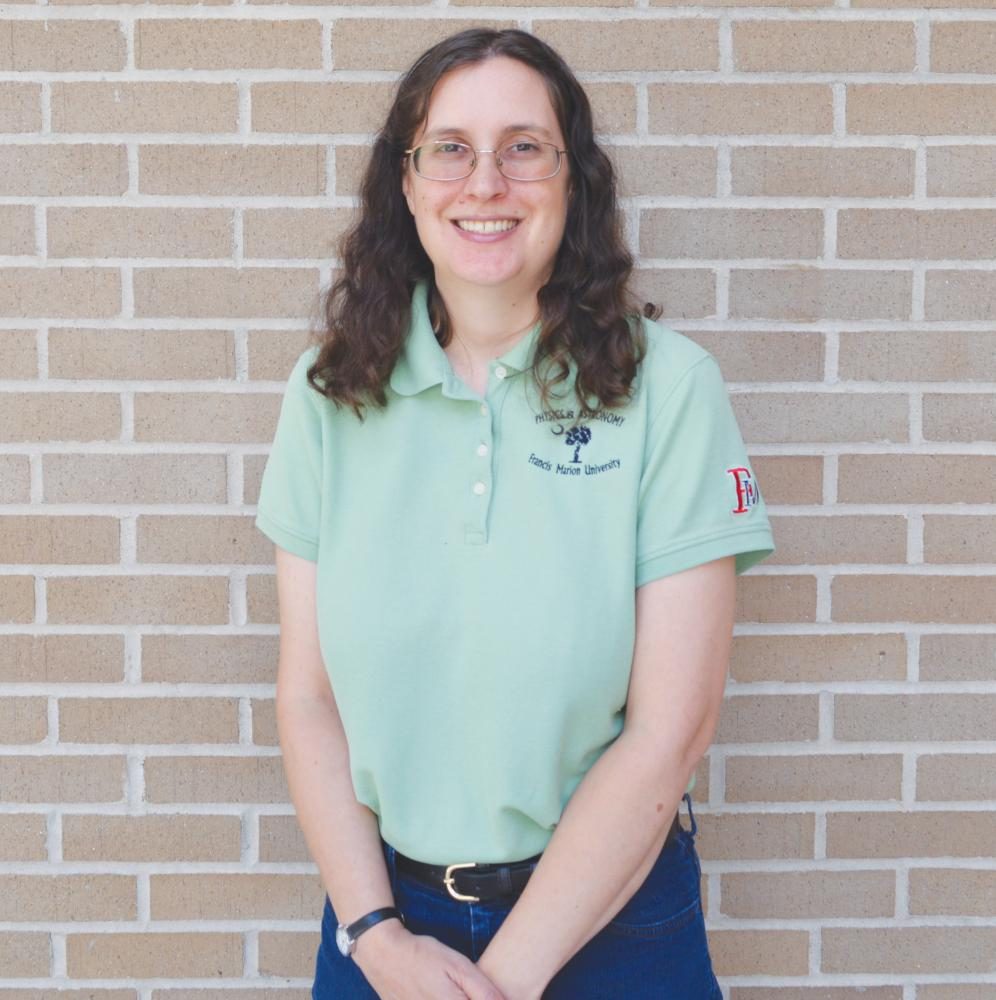Professor Spotlight: Dr. Jeannette Myers
Photo by: Kyle Graham
Director of Dooley Planetarium Dr. Jeannette Myers works to improve planetarium shows and give audiences the best experience possible.
FMU’s 2016-2017 Distinguished Professor Dr. Jeannette Myers has big plans for the university’s physics and astronomy department.
After years of serving as the Director of International Studies and Assistant Provost of FMU, Myers has progressively taken on new responsibilities on campus. Aside from teaching physical science and astronomy courses throughout the academic year, Myers’ main responsibilities are her positions as Coordinator of the Astronomy Program and Director of Dooley Planetarium.
As the director of the planetarium, Myers is expected to prepare planetarium shows for FMU students and the community. According to Myers, the planetarium frequently has showings for local elementary schools and special request groups, and each showing requires extensive work and planning. Myers said that, along with rewriting the old programs and presentations, she is constantly working on improving showings and providing viewers with the best experience possible.
“For each show, we have to plan and coordinate the presentation dates pretty early,” Myers said. “Along with that, I have to design the Digistar program that we use for simulations in the observatory. For the types of simulations and presentations I like to do, I often have to write my own program and then do a few run-throughs to make sure that everything is running smoothly.”
With a background in astrophysics and galaxy halo formations models, Myers said that her roles at FMU have complemented her personal and professional interests. After receiving her Ph.D. in astrophysics from Clemson University, Myers said that she wanted a slight change in her career, and FMU offered that change.
“When I was getting ready to look for my first job after graduate school, I wanted something a little bit more exciting,” Myers said. “For years, I had been working with and using a computer and researching components of our galaxy and the ways that it formed. I wanted something new, so I began studying galaxy collision models.”
According to Myers, she has not conducted much research in her free time because she has been focusing on her responsibilities in the classroom. She said that she wants each of her students to walk away from her classes with a better understanding of the galaxy and with a heightened sense of wonder in the world around them.
“One of the most important aspects of teaching for me is making sure that students get as much as they can from each class and are given the opportunity to learn and enjoy something new,” Myers said.
Myers said that the best way for students to fully understand class materials is by having the right equipment and technology. Most of her students have required lab components as part of their course grade, and Myers said that she wants to incorporate more opportunities for learning outside the classroom.
In her astronomy courses, students are typically required to attend several night viewings on campus. According to Myers, these viewings are usually popular and enjoyable for students, and she said that she would like to incorporate more night viewings with enough equipment for each student to get the full experience.
“For these night showings, it’s important that students have access to a telescope and the proper materials,” Myers said. “It’s sad to me that some students have never even touched a telescope, so it’s important to me to make sure that students have all the materials and technology they need to learn.”
Outside of her classes, Myers tries to share her enjoyment of learning about astronomy to others by giving speeches and presentations around South Carolina. Her most recent topic was the 2017 solar eclipse. Myers said she spent the majority of her summer delivering speeches about solar eclipses and solar eclipse safety throughout the state.
Myers is also involved in NASA Saturday, which offers hands-on science activities in Dooley Planetarium or ScienceSouth for the public to learn more about space.
“I really enjoy bringing science out to the public in different types of settings,” Myers said. “I want to show others the excitement of learning about space and the world we live in.”
